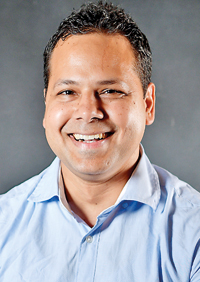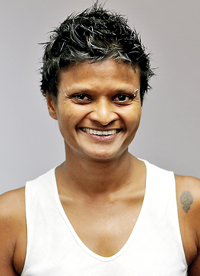NOCSL’s Sexual Harassment and Abuse Policy paves way for vital change in Sri Lanka’s sporting arena

Jivan Gunatilleke
With the clear purpose of creating an impactful change to end widespread sexual harassment and abuse in sports, the campaign initiated by the National Olympic Committee of Sri Lanka (NOC), ‘Harassment is No Game’ is making great strides across the country.
The campaign includes proper remedies to lack of education and awareness on the issue, which studies have proven that takes place across the world on regular basis. At the cornerstone of this campaign is the Sexual Harassment and Abuse Policy (SHAP) which draws on the guidelines provided by the Safe Sports Consensus Statement from the International Olympic Committee (IOC) and seeks to eradicate harassment and abuse in elite sports activities around the country.
“For the first time in our history of sports, facilitators and officials are finally taking notice and taking a stand. This is the first policy of its kind in Sri Lanka and marks a watershed moment that is long overdue and the Women’s Committee has worked to make it a reality,” a communiqué issued by NOC stated.
“Sadly abuse happens at every socio-economic level, across ethnic and cultural lines, within all religions and at all levels of education. The NOC is committed to combating this damaging phenomenon by creating policies and structures that allows for a safe and clean sporting environment that will safeguard athletes, other members and stakeholders of the sports community. From school level to national level to international level, the NOCSL hopes that this policy will bring the awareness and education needed to push this issue to the forefront of the national discourse.”

Jayanthi Kuru Uttampala
The new policy (SHAP) is an important and vital first step as it clearly lays out the commitment and roadmap to achieving success, though the national campaign is still very much in its infancy. With the need of having more prominent figures joining in the campaign, Jayanthi Kuru-Utumpala, the first Sri Lankan to climb Mount Everest and Chairperson of the Complaints Committee becomes the first to oblige.
“If we don’t make the sporting arena both attractive and safe – then we won’t get any newcomers or new opportunities to find the best people to represent Sri Lanka in international sports. We need to eradicate harassment in sports. Harassment undermines everything,” she stated.
Jivan Goonetilleke, Legal Counsel and Partner of M/s D.L. and F. De Saram which developed the Sexual Harassment and Abuse Policy (SHAP), notes the importance and relevance of such a policy in today’s sporting community.
“Taking all these things into context we wanted to come up with a comprehensive policy that covers all aspects. Sexual harassment has varying degrees, even a certain word said in a certain context is tantamount to sexual harassment as opposed to physical contact,” he said.
“The fundamental feature in this policy is the two-tier structure that we’ve put in place. If you look at sports in itself, we know that sexual harassment is something that is dealt with as a general disciplinary issue before most national federations here, but I don’t think any national federation has any particular policy when it comes to sexual harassment. That is why we decided to come up with this policy,” he added.
A key objective of SHAP is to encourage and empower all stakeholders to seek support on behalf of victims. Anyone can make a complaint with regard to sexual harassment or abuse, not just the victim. Family members, friends, spectators or bystanders can, and should, make a complaint if needed. Being able to identify abuse when you see it, hear it, and feel it, isn’t enough on its own. The community is encouraged to speak out about this issue, spread awareness and take action so that the authorities governed by SHAP can take appropriate action. A community of responsible whistle blowers can do a great deal to protect and develop the sports community. For anyone that supports a safe, thriving sports community in Sri Lanka is urged to speak up and take action on issues like harassment. Without strength in numbers and the support of all stakeholders, our young athletes will not be afforded the protection and the opportunities they deserve.
Understandably, victims and stakeholders sometimes feel uncomfortable making sensitive complaints due to social stigma or community pressure.
Goonetilleke is well aware of this longstanding challenge: “Let’s assume we didn’t have this policy – how many people have actually had recourse to the remedies available under the general law? How many complaints have we got on sexual harassment in Sri Lanka since 1995 which was when the offence of Sexual Harassment was introduced to the Penal Code? I can’t think of any recorded cases. Because victims are reluctant to go through the rigours of such process.”
The NOCSL has put the Sexual Harassment and Abuse Policy (SHAP) in place to address this shortcoming and give potential whistleblowers the confidence and the support they need to make complaints. All inquiries will be kept anonymous in order to safeguard the whistle blower and/or victim.


